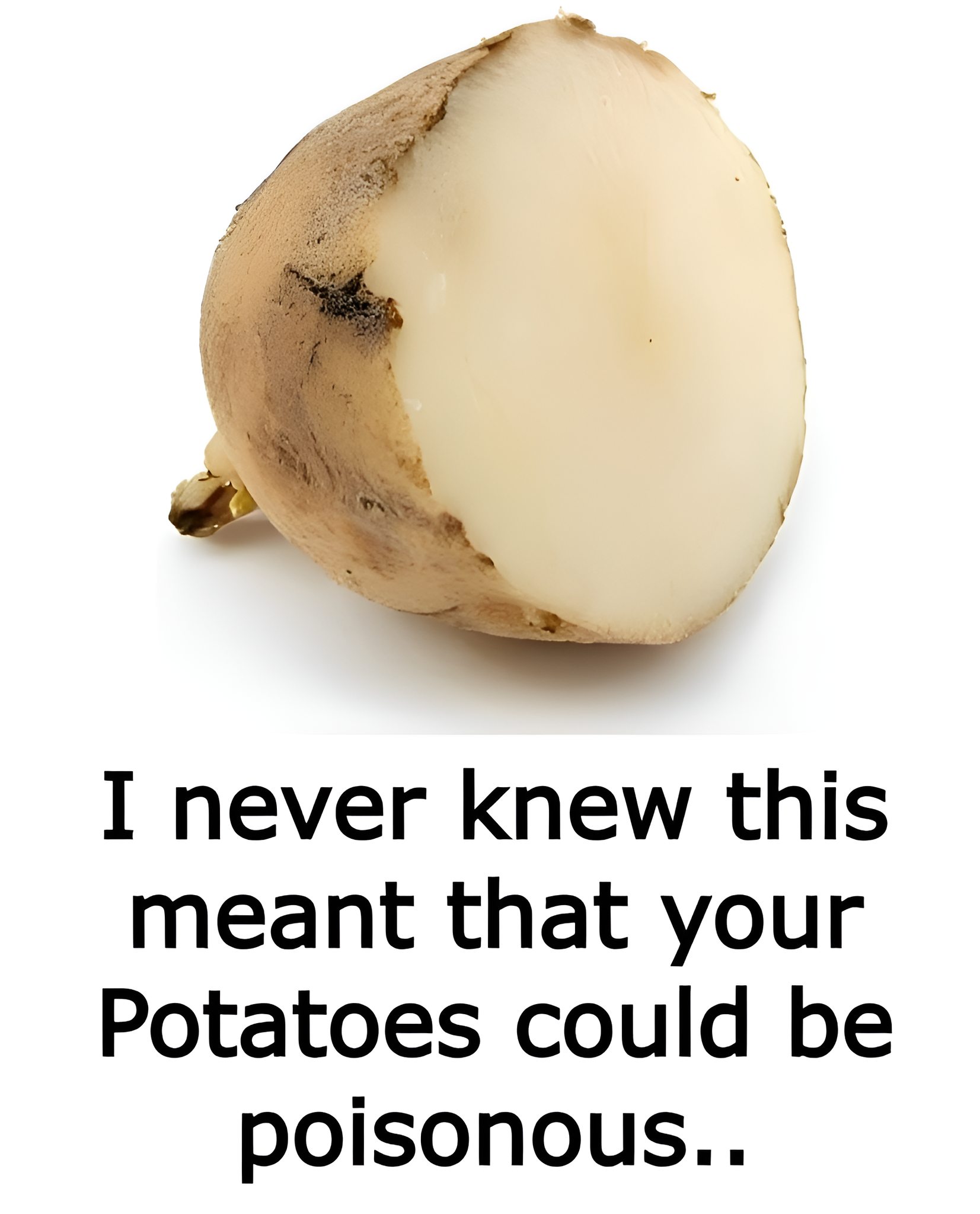I’ll admit it—I used to be the kind of person who bought a bag of potatoes, tossed them in the pantry, and forgot about them for months. I figured they were practically indestructible, unlike other vegetables that wilt or rot quickly. Potatoes seemed like they could just sit there forever, patiently waiting to be turned into fries, baked potatoes, or a big pot of mashed goodness.

But I learned the hard way that this isn’t true. Potatoes can actually turn poisonous if you keep them too long or store them the wrong way. Yes, that innocent spud sitting quietly in your kitchen could make you sick, and if you don’t know what to watch out for, you might accidentally cook a toxic meal without realizing it. Potatoes naturally contain a toxin called solanine. This chemical is part of the potato’s built-in defense system against pests. Normally, the amount of solanine in a potato is so low it’s perfectly safe to eat, but under certain conditions, those levels can rise dramatically, and that’s when things get risky. Eating a potato with too much solanine can lead to nausea, headaches, digestive issues, and in severe cases, far more dangerous consequences.
The good news is you don’t have to panic every time you cook potatoes—you just need to know the warning signs that tell you it’s time to toss them. The first sign is color. If your potato has developed a greenish tint, that’s a big red flag. This usually happens when potatoes are exposed to light for too long, which causes an increase in solanine production. If there’s just a small green spot, you can cut it out and still use the rest. But if the whole thing looks like it’s gone full-on Grinch green, don’t risk it—it’s safer to throw it away. The second warning sign is sprouting. For years, I thought those little sprouts were harmless and just snapped them off before cooking.
But sprouting actually means the potato is producing more solanine and another toxin called chaconine, both of which can make you sick. A couple of tiny sprouts can sometimes be cut away, but if your potato looks like it’s trying to grow arms and legs, it’s beyond saving. Another key indicator is texture. A good potato should feel firm and solid. If it’s soft, wrinkly, or shriveled up like it’s been through a rough breakup, that’s a sign its chemical composition has started to change, which can increase toxin levels.
@kellyscleankitchen Why you should never eat sprouted potatoes #potatoes #foodpoisioning #cooking ♬ Wes Anderson-esque Cute Acoustic – Kenji Ueda
Plus, nobody wants to eat a potato that looks and feels sad. Smell is another giveaway. Fresh potatoes barely have a scent, so if you pick one up and it smells musty, sour, or just plain foul, bacteria and rot have already taken over. At that point, there’s no rescuing it—straight to the trash it goes. The final warning sign is when a potato feels mushy or wet, or if you notice it leaking some strange liquid. That’s advanced spoilage, and it’s definitely not safe to eat. Once a potato reaches this stage, it’s better to cut your losses than risk getting sick. The best way to avoid having to throw out a bag of potatoes is proper storage. Keep them in a cool, dark place like a pantry or cupboard to slow down the production of solanine. Never store them in the fridge—the cold temperature turns their starch into sugar, which changes both the taste and texture in unpleasant ways.
Try to use your potatoes within a few weeks instead of letting them sit for months, and always check for these warning signs before you cook. Finally, store them somewhere dry, in a breathable bag or basket, instead of a sealed plastic bag where moisture can build up and speed spoilage. Potatoes are one of the most versatile and beloved foods out there, but it’s important to know when to hold onto them and when to let them go. A little green or a tiny sprout might be safe if you trim it off, but if your potatoes are sprouting wildly, smelling funky, turning soft, or leaking, it’s better to toss them than risk your health. Better safe than sorry, right? Now if you’ll excuse me, I think I need to go check my own potato stash and make sure nothing in there is turning toxic before dinner.





